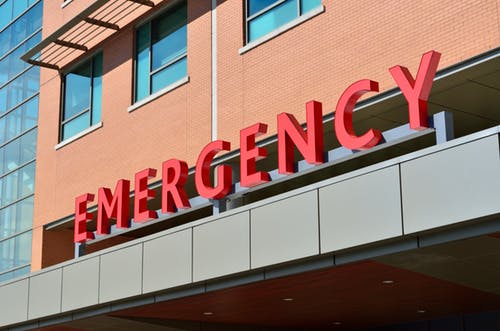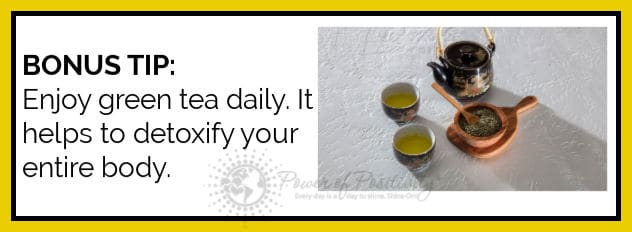Sometimes things happen in life that you cannot control. These can include life disasters, unexpected car accidents, and family illnesses. What you can do is do your best to prepare for these through preventative actions that will minimize their impact if they occur. You don’t drive your car without a seatbelt, for example. You should also consider implementing stroke prevention by selecting healthy foods.
Granted, you might not be able to know 100% if you’ll have a stroke. But you can take steps to avoid one.
Eating a well-balanced diet and exercising are keys to staying healthy. You have the power to take charge of your choices and make the right ones. Learn the foods that can help you in this fight.
What is a stroke?
Doctors classify most strokes as ischemic and hemorrhagic strokes though in both cases, the same result happens.
Ischemic stroke
The most common type of problem, the Ischemic stroke occurs when a blood vessel in the neck or the brain gets blocked. The blockage can be a blood clot, thrombosis, which moves throughout the body to plant itself in the brain.
Hemorrhagic Stroke
A hemorrhagic problem is one that occurs when a blood vessel in the brain ruptures. Hemorrhagic strokes are most common in people with high blood pressure.
What are the signs of a stroke?
Not everyone will experience all the signs of strokes, but you should be aware of what could be happening to you.
1 – Physical Weakness
You might mistake the weakness for fatigue, but it is more of a weakness that seems to permeate your body. The feeling may confine itself to only one side of your body, face, or limbs. Your face may even reflect the weakness of the impending problem with one side dropping.
Your limb or limbs might tingle, or they may feel like there are pins in certain portions of your body. If you have any of these sensations, you should call 911 as soon as you can. Treatment is available in the emergency room, and doctors can minimize the impact with prompt treatment.
2 – Headache
A severe headache is a common occurrence in the strokes that happen in younger women. Experiencing an acute headache or migraine can be a sign that one may be coming, and your risk has increased. This symptom happens to older people who are at risk for strokes, as well.
3 – Disorientation
Many women who are at risk can start to have vertigo with the feeling of nauseous and dizziness. These signs are easy to ignore, as many people would think they are just fatigued. It may be just a minor feeling, but if nausea results in vomiting and doesn’t end, then it’s a sign there may be more of a problem than a severe stomach bug.
Your behavior might also indicate a problem with your head as hallucination and agitation are common signs of a pending problem. You may not be acting like yourself during this time. Your agitation and slurred speech indicate a more significant challenge.
4 – Trouble walking or moving
Problems walking are also a sign as an ominous sign. You might feel the disorientation and lack of balance as you try to walk. You might have difficulty standing or even doing basic walking. Your coordination problems can be because of a lack of blood supply to your brain. T
The lack of blood to your brain can also result in sudden seizures or fainting spells. A medical test can indicate whether there is a blockage or if there are other unknown problems.
Understanding the risks of having strokes is key to knowing what might be happening to you.
What causes a stroke to occur?
There are several reasons for you to have strokes, and most of them are lifestyle-related. Knowing the signs of having strokes and why they can happen are keys to trying to avoid them happening.
1 – High blood pressure
Having high blood pressure damages your arteries. Having damaged arteries makes it more likely to cause a blockage. There are ways to take charge of high blood pressure through diet and exercise.
2 – Tobacco use
Tobacco use, smoking, vaping or chewing tobacco increase the buildup in your arteries and cause severe constriction. Your chance of having strokes increases if you smoke. Just being around the smoke, called second-hand smoke, increases your chances of having strokes.
3 – Heart disease
Heart disease with irregular heartbeats and defective heart valves can results in strokes as the body is unable to function correctly. Damaged blood vessels make the likelihood of strokes occurring more probable.
4 – Alcohol
Drinking alcohol in large amounts results in the increase in your blood pressure and the chances of strokes. Alcohol raises your blood pressure, which causes strokes. You are also more likely to develop other types of problems like diabetes.
5 – Lack of exercise
Being overweight comes with numerous health problems, but there it is directly connected to having strokes. Exercise helps you lower your blood pressure and reduce your risk. You also make your blood vessels stronger and less likely to have strokes. Your blood vessels are stronger and will be less likely to have strokes through blockages.
6 – Medication
Multiple types of medicines can increase your chances of strokes. Birth control pills, hormone therapy, and blood-thinning drugs can cause strokes. Reading all the possible downsides of medications is a must before taking them.
7 – High cholesterol
Eating a poor diet full of saturated fats can cause blockages and cause strokes. Cholesterol is found in dairy, meat, and eggs and in consumed in large amounts, can cause plaque to build up in your arteries. While the body does produce and need small amounts of cholesterol, a diet that contains large quantities can be detrimental to your overall health.
Foods that help prevent a stroke
Eating a well-balanced diet can do amazing things for your brain and your body. Eating foods that are natural blood thinners can help as well, like turmeric, ginger, and cinnamon.
1 – Citrus Fruits
The connection between fruit and a reduced risk of multiple health problems form many studies even today to gain more information. The consumption of citrus fruits is notable because they are full of flavonoids, which reduces the risk of developing clots and other things that can damage the brain.
2 – Leafy Green Vegetables
Many leafy green vegetables are incredibly healthy for you and provide an extensive list of reasons to eat them. Increased servings of vegetables, five or more a day, lower the risks of strokes.
Eating a Mediterranean diet, which includes a large helping of leafy greens, can reduce the risk of having strokes by up to 60 percent.
3 – Whole Grains
Whole grains are good for multiple health benefits. Consumption of whole grains adds a rich dose of fiber to any diet. They are also full of antioxidants and other beneficial components for the health of the entire person; the higher the whole grain intake, the lowers the risk of strokes.
4 – Dark Chocolate
Most people do not need a reason to eat dark chocolate, but dark chocolate is full of polyphenols, flavonols, and other antioxidants, which are extremely good for you. The extreme concentration of cocoa on LDL cholesterol and insulin makes it an excellent way to give yourself a treat and fight health problems.
5 – Nuts
Adding an ounce of nuts to your daily diet can reduce the chance of strokes by at least half. Foods rich in healthy fats reduced the risk of having strokes considerably.
6 – Coffee
Coffee is an excellent way to start a day. It is also a way to help reduce the risks associated with having an ischemic attack. It requires at least 4 cups a day to be preventative, though.
7 – Tea
Green tea, when prepared with distilled water, helped to remove the free radicals in the body. Green tea offers you some of the most amazing antioxidants, and it includes the ability to protect the brain from injury and help the body stay functional.
8 – Bananas
Eating a banana a day will leave you with a healthier heart and a hefty dose of potassium. Consuming at least 4,000 milligrams of potassium a day can help you reduce your chances of having strokes. A banana is 500 milligrams of potassium, which is a good start for any day.
9 – Garlic
Garlic provides for a decrease in LGL cholesterol (bad cholesterol) with an increase in HDL cholesterol (Good Cholesterol). The reduction of risk for an Ischemic attack by at least 50%.
10 – Probiotics
Eating a diet loaded with probiotics can help clean up your system. Probiotics are gut health microbes that help clean the digestive system and help you digest food. Yogurts, some cottage cheese, sauerkraut, tempeh, and kefir are terrific ways to ingest these live active cultures.
Foods to Avoid for Aiding in Stroke Prevention
You should eat specific foods, only sparingly or not at all. The damage these foods do to the body can result in strokes.
1 – Red meat
Red meat can be part of a regular diet, but large portions of red meat are not suitable for your body. It has large amounts of saturated fat, which indicates a 50% increased chance of having a stroke. Saturated fat blocks arteries and red meat is full of it and should be minimized or eliminated from a regular diet.
2 – Salt
Adding large amounts of salt to foods or eating canned or processed foods adds large quantities of salt to your diet. Salt is both a seasoning and preservative. Although the body does need some salt to function, the amounts contained in processed and canned foods raise blood pressure and increase the chances of having a stroke.
Final Thoughts on Becoming Resistant to Strokes Through Your Foods
Sometimes genetic factors create the situation for strokes, but often how you live your life can make these problems higher. Being aware of what you can do to make yourself healthier can help you take charge of your health. Eating a well-balanced diet full of fruits, vegetables, and healthy fats like fish can make your body stronger and reduce your risk of stroke.
There are many different types of food you can eat that will help keep yourself active and healthy. Making healthy food choices is in your power, and you can make the right choices for your future. Seasoning food right and making it taste incredible can help you make your transition to a healthy lifestyle.















 Community
Community

